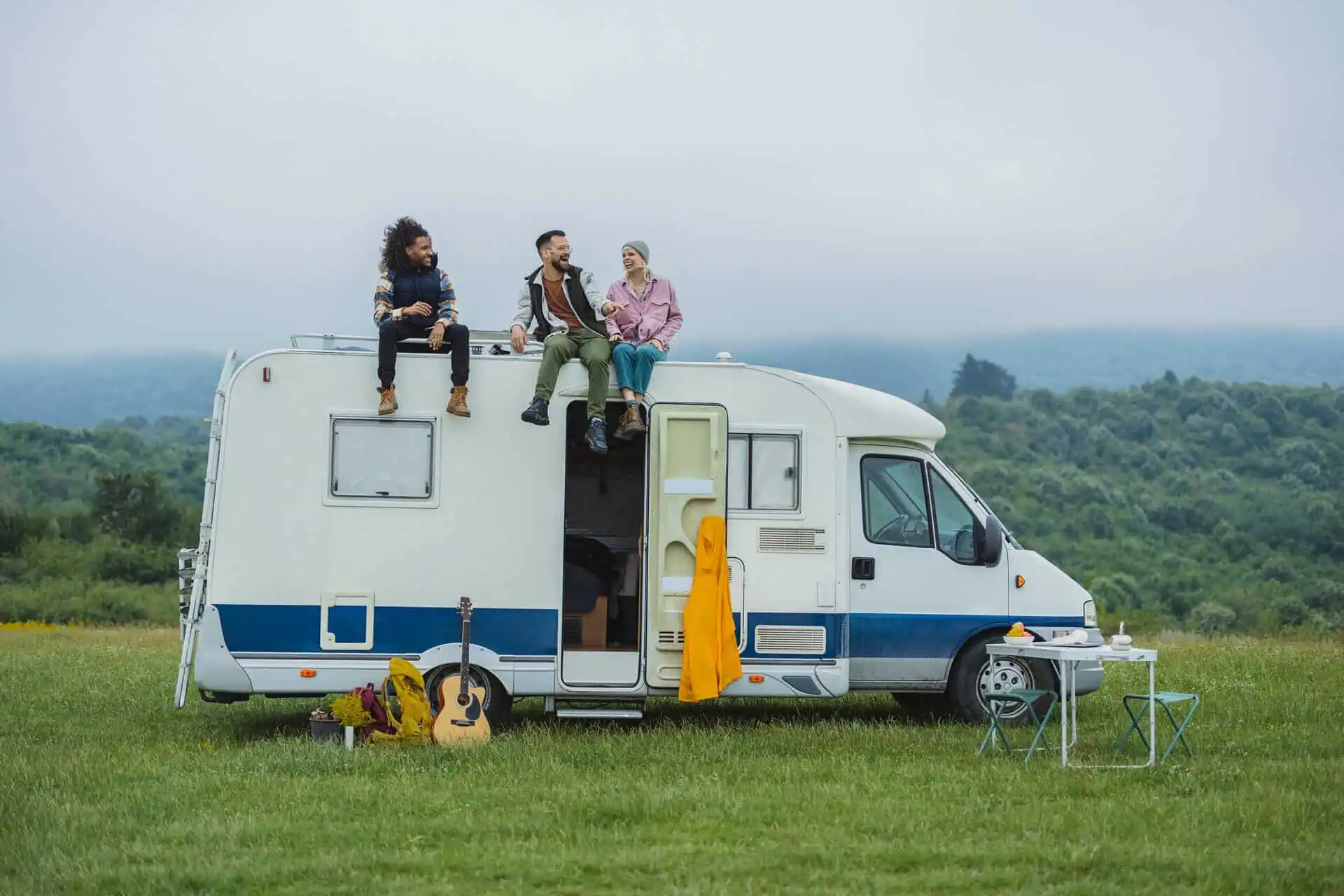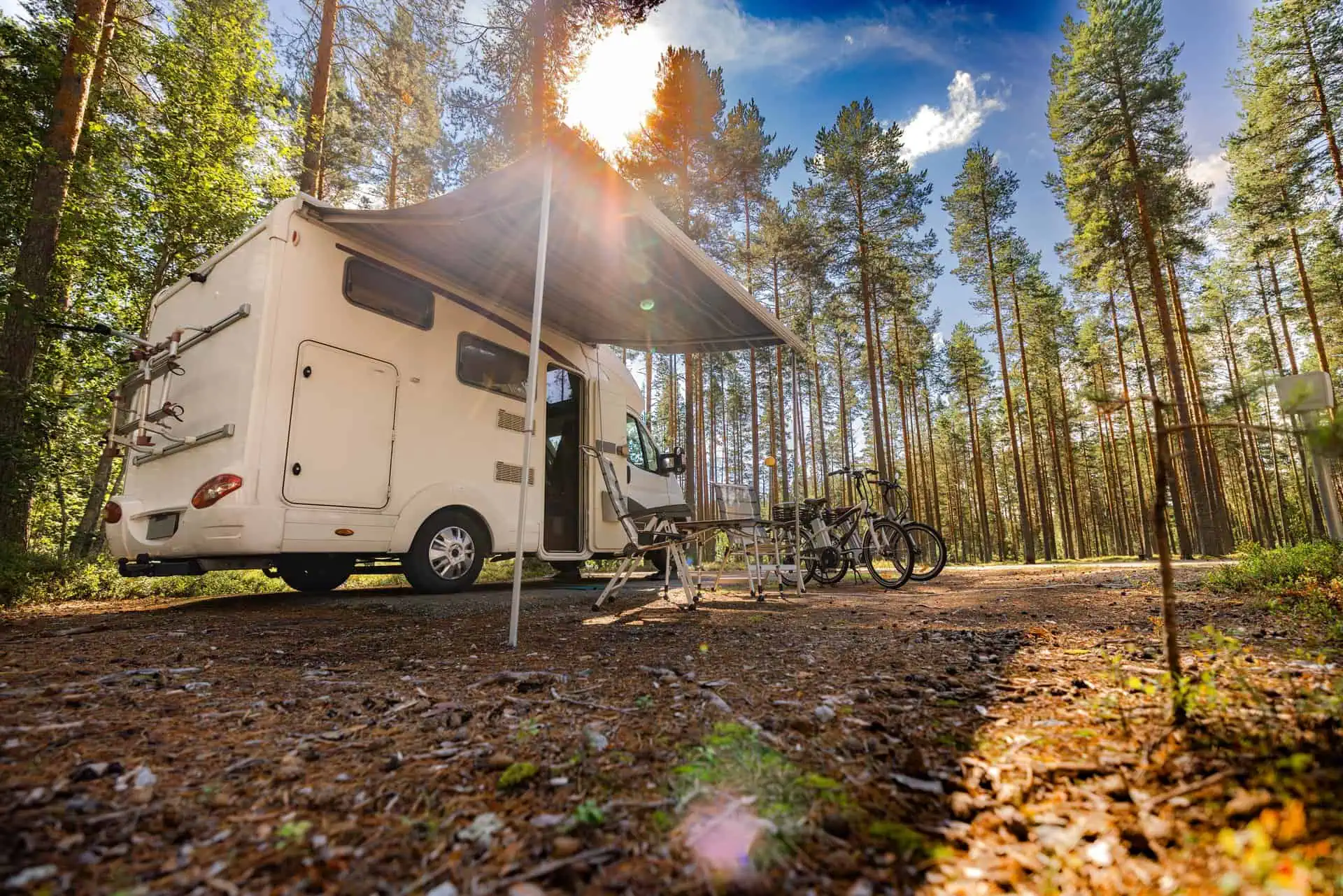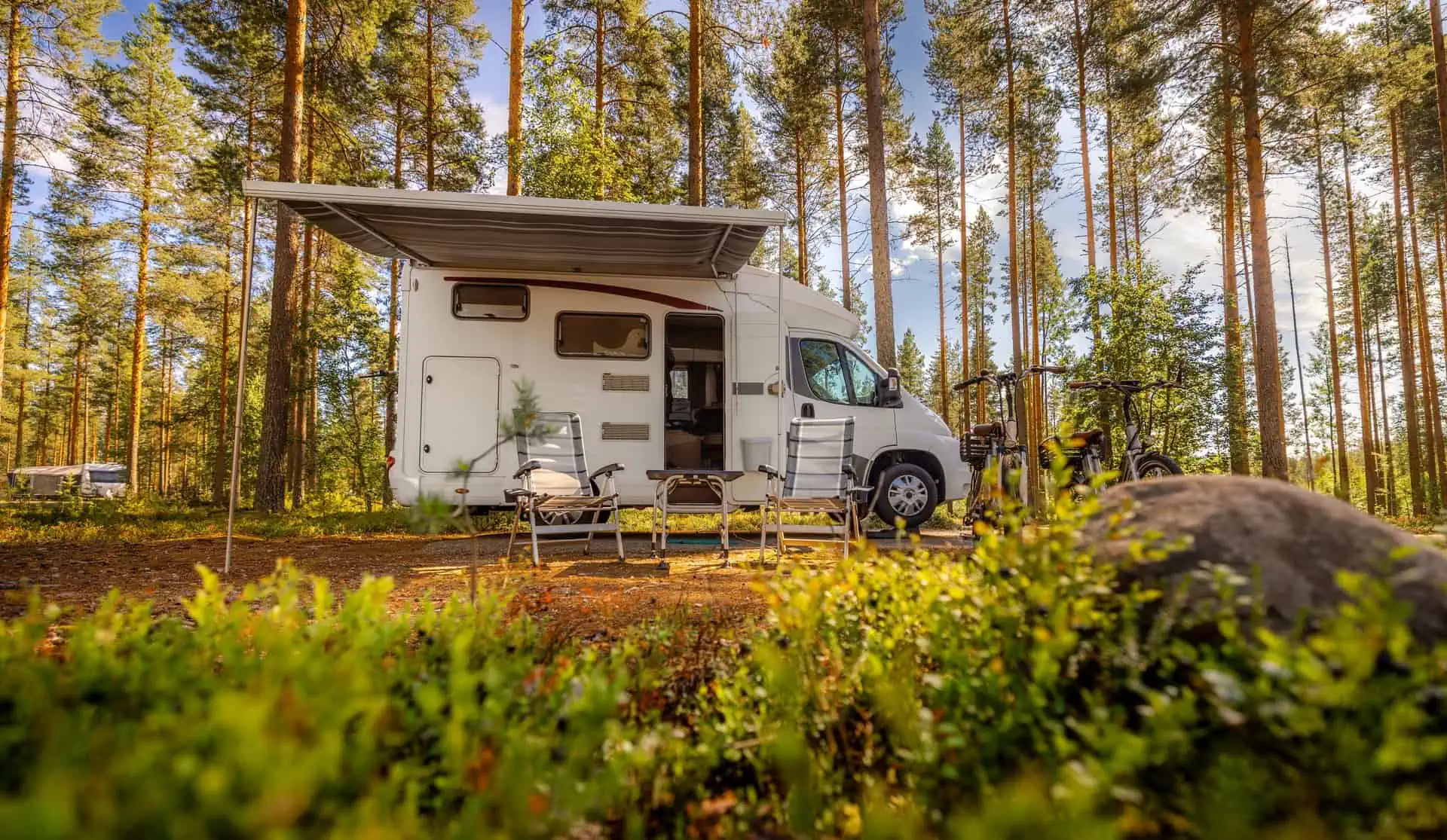Whether you’re hitting the road for a summer adventure or living full-time in your RV, having the right insurance policy is essential. At Cunningham Associates Insurance, located in the heart of New Hampshire, we understand that RV owners have unique needs. But one common question we hear often is: what’s the difference between full-timer and vacation RV insurance?
If you own a motorhome or travel trailer in New Hampshire, this post will help you understand the key distinctions between these two types of coverage so you can make informed decisions about protecting your home on wheels.

What Is Vacation RV Insurance?
Vacation RV insurance is designed for recreational vehicle owners who use their RV seasonally or occasionally for trips, camping, or vacations. It’s an option for part-time users who do not live in their RV year-round.
This type of policy generally offers protection similar to an auto insurance policy but is tailored to recreational use. Depending on the provider, it may include:
- Liability coverage in case you’re responsible for an accident
- Collision and comprehensive coverage for physical damage to the RV
- Emergency expense coverage for costs if your RV breaks down far from home
- Vacation liability coverage when the RV is parked and being used as a residence temporarily
Since the RV isn’t used as a permanent residence, coverage often assumes lower risk, which may be reflected in the premiums.
What Is Full-Timer RV Insurance?
Full-timer RV insurance is intended for people who live in their RVs full-time, typically 6 months or more out of the year. This policy type is closer to a blend between homeowners insurance and auto insurance.
For New Hampshire residents who use their motorhome as their primary dwelling, full-timer insurance may offer more extensive protections, such as:
- Personal liability coverage, similar to what you’d find in a homeowners policy
- Medical payments to others in the event someone is injured in or around your RV
- Personal property coverage for belongings kept in the RV
- Loss assessment coverage for shared property in RV parks or campgrounds
Because full-time use means the RV is exposed to more risk on a daily basis, full-timer policies typically offer broader protection that considers the RV as a permanent residence rather than a vacation vehicle.
Which Policy Is Right for New Hampshire RV Owners?
The right type of RV or motorhome insurance in New Hampshire depends largely on how you use your vehicle. Here are a few key questions to ask yourself:
- Do you live in your RV year-round or just travel during certain seasons?
- Is your RV your primary residence?
- How often and how far do you travel in your RV?
- Do you store personal belongings in the RV like you would in a house?
If your RV is primarily a vacation tool used on weekends or holidays, a vacation RV insurance policy might meet your needs. But if you live in it full-time or travel extensively, full-timer coverage may be worth exploring.

What Does Motorhome Insurance Typically Include?
Motorhome insurance policies vary depending on the carrier and how the RV is used. However, both vacation and full-timer policies may include:
- Collision coverage to help with repairs or replacement after an accident
- Comprehensive coverage for non-collision-related damage, like weather or theft
- Uninsured/underinsured motorist coverage to protect against other drivers
- Roadside assistance in case of breakdowns on the road
- Storage options for when your RV is parked during off-seasons
For New Hampshire RV owners, some insurers may also offer winterization-related coverage options or flexible deductibles that reflect the state’s changing weather patterns.
Are There Coverage Differences Between Travel Trailers and Motorhomes?
Yes, the type of RV you own—whether a travel trailer or a motorhome—can affect how your insurance policy is structured. A travel trailer is typically towed by another vehicle and is not motorized. As a result, it may not require liability coverage in the same way a motorhome does, since that responsibility often falls on the towing vehicle’s insurance.
Motorhomes, on the other hand, are self-propelled and classified as vehicles, which means they typically need coverage similar to a car or truck. That said, both types can be insured for their unique risks, including coverage for the structure, contents, and liability.
What Should New Hampshire Residents Consider When Choosing RV Insurance?
When shopping for RV or motorhome insurance in New Hampshire, it’s important to consider:
- Seasonal weather: Winters in New Hampshire can be harsh, and your policy may need to account for storage, snow damage, or freezing conditions.
- Storage locations: Where and how you store your RV during the off-season can influence your coverage needs.
- Travel habits: If you travel frequently or outside of New England, ensure your policy offers national coverage or adequate protection while out-of-state.
- Liability risks: Whether you host guests in your RV or park in crowded campgrounds, liability coverage can offer financial protection against accidents or injuries.
Cunningham Associates Insurance can help tailor your RV policy to meet these local and lifestyle-based needs.
How Can Cunningham Associates Insurance Help?
At Cunningham Associates Insurance, we take pride in helping New Hampshire residents find RV insurance solutions that match their lifestyle. Whether you own a luxury motorhome or a weekend camper, we can guide you through policy options, answer your questions, and help identify the right coverage for your situation.
We work with multiple carriers to offer a range of coverage options for:
- Full-time RVers
- Vacation-only users
- Motorhomes, campers, and travel trailers
If you’re unsure whether you need full-timer or vacation RV insurance, we’re happy to review your usage patterns and recommend personalized options. Contact Cunningham Associates Insurance today to learn more about coverage for your RV lifestyle.


